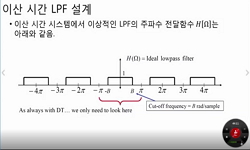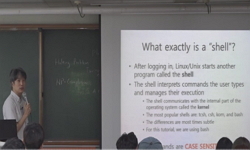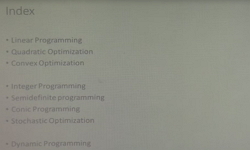The purpose of this study is to derive critical success factors for ERP system implementation by integrating managerial, technical, human resource and organizational culture factors which have been proposed as influencing factors for the performance o...
http://chineseinput.net/에서 pinyin(병음)방식으로 중국어를 변환할 수 있습니다.
변환된 중국어를 복사하여 사용하시면 됩니다.
- 中文 을 입력하시려면 zhongwen을 입력하시고 space를누르시면됩니다.
- 北京 을 입력하시려면 beijing을 입력하시고 space를 누르시면 됩니다.
ERP시스템 구축단계별 주요성공요인에 관한 실증적 연구 : 시스템개발주기 관점에서 = (An)empirical study on critical success factors in implementing ERP system : a system development life cycle perspective
한글로보기https://www.riss.kr/link?id=T9338092
- 저자
-
발행사항
서울 : 광운대학교 대학원, 2000
- 학위논문사항
-
발행연도
2000
-
작성언어
한국어
- 주제어
-
KDC
325.431 판사항(4)
-
발행국(도시)
서울
-
형태사항
xiv, 193 p. ; 26 cm
-
일반주기명
부록으로 '설문협조요청 서신'등 수록
참고문헌 :p. 171-179 - 소장기관
-
0
상세조회 -
0
다운로드
부가정보
다국어 초록 (Multilingual Abstract)
The purpose of this study is to derive critical success factors for ERP system implementation by integrating managerial, technical, human resource and organizational culture factors which have been proposed as influencing factors for the performance of ERP system implementation in previous studies. Especially, this study divides ERP system implementation process into preparation stage, implement stage and settle-down and stabilization stage, and then derives critical success factors in each stage. Also, in this study ERP system implementation strategies relating to BPR implementation timing and ERP system installation method are established as contingent factors which may moderate the effect of these critical success factors on ERP system implementation performance.
The data for empirical analysis of the research model are collected from 64 companies and the respondents for questionnaire consist of ERP system implementation project managers and user department managers in companies which have already operated it after ERP system installation. For statistical analysis, frequency analysis, factor analysis, correlation analysis, ANOVA, T-test and multiple regression are performed.
The main results of this study are as follows. First, it derives 33 success factors through comprehensive review of various factors which may affect ERP system implementation performance, and categorizes them into one of three stages : preparation stage, implement stage, and settle-down and stabilization stage.
Second, the relationship between many success factors at each stage (preparation stage, implement stage, and settle-down and stabilization stage) and performance variables is tested. As a result, the significant correlations between many success factors at each stage and ERP system implementation performance are found, and the difference among success factors in the degree of influencing the system performance is significantly shown.
Third, the result of testing the difference among the strategies of ERP system implementation shows that there is no significantly different performance according to BPR implementation timing(ERP system implementation after BPR, implementing both BPR and ERP system at the same time, ERP system implementation concurrent with BPR) and ERP system installation method(phased approach and big bang approach).
Fourth, this study tests whether there are different correlations or not between the success factors of each ERP system implementation stage and ERP system implementation performance depending upon the strategies of ERP system implementation. As a result, it is shown that some of success factors have significantly different correlations with performance variables in accordance with BPR implementation timing and ERP system installation method.
Finally, the relationship between process-oriented performance variables and result-oriented performance ones is tested. As a result, it is found that there is significant correlation between process-oriented performance variables except for one variable - project resource management appropriateness - and result-oriented performance ones.
The theoretical contribution of this study is to derive contingent comprehensive model of critical success factors for implementing ERP system project from the system development life cycle perspective, and empirically test it through field survey with a wide range of data collection. And, the practical implication of this study is to present the desirable guidelines for performing ERP system implementation project successfully.
국문 초록 (Abstract)
본 논문의 목적은 기존의 연구에서 ERP시스템 구축성과에 영향을 미치는 요인들로 제시되었던 관리적, 기술적, 인적자원 및 조직문화적 요인 등 제반 영향요인들을 통합하여, ERP시스템 구축...
본 논문의 목적은 기존의 연구에서 ERP시스템 구축성과에 영향을 미치는 요인들로 제시되었던 관리적, 기술적, 인적자원 및 조직문화적 요인 등 제반 영향요인들을 통합하여, ERP시스템 구축의 주요성공요인을 도출하고자 하였으며 특히 시스템 구축과정을 도입 준비단계, 구현단계, 정착 안정화단계 등 세 단계로 구분하고 단계별 주요성공요인을 도출하고자 하였다. 또한 BPR 실시시기와 ERP시스템 설치방법 등 ERP시스템 구축전략 유형을 ERP시스템 구축단계별 성공요인들이 구축성과에 미치는 영향력에 차이를 야기하는 상황요인으로 설정하였다.
본 논문에서 제시된 연구모형의 실증적 분석을 위한 자료는 64개의 기업으로부터 수집되었다. 설문응답자는 ERP시스템 구축 후 운영중인 기업의 ERP시스템구축 프로젝트 관리자와 실제 ERP시스템을 사용중인 현업 부서 관리자로 한정하였다. 가설 검증을 위해 빈도분석, 요인분석, 상관관계분석과 다중 회귀분석, 분산분석, T-검정을 실시하였다.
본 연구의 주요 결과로서는, 첫째, 기존의 연구에서 ERP시스템 구축성과에 영향을 미치는 제반 요인들을 종합적으로 고찰한 결과 33가지 성공요인을 도출하였다. 또한, 도출된 성공요인을 사전 준비단계, 구현단계, 정착 안정화단계별로 구분하여 제시하였다.
둘째, 사전 준비단계, 구현단계, 정착 안정화단계별 성공요인과 성과변수간의 관계를 검증하였다. 그 결과 세 단계의 많은 성공요인들과 시스템 구축성과간에 유의적인 상관관계가 있는 것으로 밝혀졌고, 성공요인간의 영향력의 차이도 나타났다.
셋째, ERP시스템 구축전략 유형에 따라 ERP시스템 구축성과가 다르게 나타나는지를 검증한 결과, BPR 실시시기(BPR 후 ERP시스템 구축, BPR과 ERP동시 구축, ERP시스템에 맞추어 BPR실시)와 ERP시스템 설치방법(단계적으로 설치, 동시에 설치)에 따른 성과차이는 없는 것으로 나타났다.
넷째, ERP시스템 구축단계별 성공요인들이 ERP시스템 구축전략 유형에 따라서 시스템 구축성과와 상이한 상관관계를 갖는지를 검증하였다. 그 결과 BPR 실시시기와 ERP시스템 설치방법의 전략유형에 따라 일부 성공요인들이 성과변수와 상이한 상관관계를 나타냈다.
다섯째, 과정중심적 성과변수와 결과중심적 성과변수간의 상관관계를 검증하였다. 그 결과 과정중심적 성과변수 중 프로젝트 자원관리 적정성을 제외한 성과변수들이 결과중심적 성과변수와 유의적인 상관관계가 있음을 확인하였다.
본 연구는 시스템개발 수명주기의 관점에서 ERP시스템 구축의 주요성공요인에 관한 상황적 통합모형을 도출하고 이를 광범위한 자료조사를 통해 실증적으로 검증함으로써 ERP시스템 구축분야에 이론적인 기여를 하였다고 보며, 실무적인 측면의 공헌은 현업의 ERP시스템구축 프로젝트를 성공적으로 수행하는데 바람직한 업무지침을 제시했다는 점이다.
목차 (Table of Contents)
- Ⅰ. 서론 1
- 1.1 연구배경 1
- 1.2 연구목적 3
- 1.3 연구 범위 및 방법 3
- 1.4 논문의 구성 5
- Ⅰ. 서론 1
- 1.1 연구배경 1
- 1.2 연구목적 3
- 1.3 연구 범위 및 방법 3
- 1.4 논문의 구성 5
- Ⅱ. ERP시스템의 시장 동향과 전망 7
- 2.1 세계 및 국내 ERP시스템 시장 전망 7
- 2.1.1 세계시장 전망 7
- 2.1.2 세계 ERP산업과 국내 ERP산업의 비교 9
- 2.1.3 국내 S/W산업에 있어서의 ERP시장규모 9
- 2.1.4 국내 ERP산업의 부문별 매출액 10
- 2.2 국내 ERP시스템 구축 현황 11
- 2.2.1 연도별 국내 ERP 구축 사이트 수 11
- 2.2.2 산업 분야별 국내 ERP시스템 구축현황 12
- 2.3 국내외 ERP패키지 업체의 활동 동향 13
- 2.3.1 ERP패키지 업체별 매출현황 13
- 2.3.2 국산 ERP패키지 및 외산 ERP패키지 시장점유율 비교 15
- 2.3.3 국산 ERP패키지의 특징 17
- Ⅲ. ERP시스템 구축에 대한 이론적 배경 20
- 3.1 ERP시스템의 등장배경 20
- 3.2 ERP시스템의 정의 21
- 3.3 ERP시스템의 기능 23
- 3.4 ERP시스템의 구축방법 29
- 3.5 ERP시스템의 특성과 기대효과 32
- 3.6 ERP시스템 구축단계 35
- 3.6.1 정보기술을 이용한 경영혁신 단계모형 35
- 3.6.2 ERP시스템 구축단계 모형 36
- 3.7 ERP시스템 구축의 성공요인 41
- 3.7.1 전반적 성공요인 41
- 3.7.2 ERP시스템 구축단계별 성공요인 50
- 3.8 ERP시스템 구축전략 57
- 3.8.1 BPR 실시와의 연계 57
- 3.8.2 시스템설치 접근방법 61
- 3.9 ERP시스템 구축성과 64
- 3.9.1 과정중심적 성과평가 65
- 3.9.2 결과중심적 성과평가 66
- 3.9.3 BPR추진 성과평가 66
- 3.9.4 ERP시스템 구축성과의 선행연구 67
- 3.9.5 ERP시스템 구축성과기준의 분류체계 72
- Ⅳ. 연구가설 및 모형 74
- 4.1 연구모형 74
- 4.2 연구가설의 도출 75
- 4.2.1 ERP시스템 구축단계별 주요성공요인과 ERP시스템의 구축 성과간의 관계 75
- 4.2.2 ERP시스템 구축전략유형과 ERP시스템 구축성과간의 관계 75
- 4.2.3 ERP시스템 구축전략유형에 따른 ERP시스템 구축단계별 주요성공요인과 ERP시스템의 구축성과간의 관계 76
- 4.2.4 ERP시스템 구축의 과정중심적 성과와 결과중심적 성과간의 관계 76
- Ⅴ. 연구설계 및 변수측정 77
- 5.1 표본추출 및 자료수집 77
- 5.2 표본의 특징 78
- 5.2.1 표본대상기업의 일반적 현황 78
- 5.2.2 표본대상기업의 ERP시스템 구축 현황 81
- 5.2.3 설문응답자의 인구통계학적 분포 현황 87
- 5.3 변수의 조작적 정의 및 측정 89
- 5.3.1 ERP시스템 사전 준비단계의 주요성공요인 89
- 5.3.2 ERP시스템 구현단계의 주요성공요인 89
- 5.3.3 ERP시스템 정착 안정화단계의 주요성공요인 90
- 5.3.4 ERP시스템 구축전략 92
- 5.3.5 ERP시스템 구축성과 93
- 5.4 자료분석방법 95
- Ⅵ. 실증분석결과 96
- 6.1 변수의 타당성 및 신뢰성 검증 96
- 6.2 가설검증 98
- 6.2.1 ERP시스템 구축단계별 성공요인과 구축성과간의 관계분석 (가설 1) 98
- 6.2.1.1 ERP시스템구축의 사전 준비단계 성공요인과 구축성과 간의 상관관계분석(가설 1.1) 102
- 6.2.1.2 ERP시스템구축의 구현단계 성공요인과 구축성과간의 상관관계분석(가설 1.2) 104
- 6.2.1.3 ERP시스템구축의 정착 안정화단계 성공요인과 구축성과간의 상관관계분석(가설 1.3) 108
- 6.2.1.4 ERP시스템 구축성과에 대한 ERP시스템 구축단계별 성공요인간 영향력 차이분석(가설 1.4) 110
- 6.2.2 ERP시스템 구축전략유형과 ERP시스템 구축성과간의 관계 분석(가설 2) 117
- 6.2.2.1 BPR 실시시점과 구축성과간의 관계분석(가설 2.1) 117
- 6.2.2.2 ERP시스템 설치방법과 구축성과간의 관계분석(가설 2.2) 118
- 6.2.3 ERP시스템 구축전략에 따른 구축단계별 성공요인과 구축 성과간의 상관관계분석(가설 3) 119
- 6.2.3.1 BPR 실시시점에 따른 구축단계별 성공요인과 구축성과간의 상관관계분석(가설 3.1) 119
- 6.2.3.2 ERP시스템 설치방법에 따른 구축단계별 성공요인과 구축성과간의 상관관계 분석(가설 3.2) 140
- 6.2.4 ERP구축의 과정중심적 성과와 결과중심적 성과간의 상관 관계분석(가설 4) 156
- 6.3 부가적 분석 158
- 6.3.1 도입 패키지별 ERP시스템 구축성과 비교 158
- 6.3.2 프로젝트특성 변수와 구축성과간의 상관관계분석 161
- Ⅶ. 결론 164
- 7.1 연구 요약 164
- 7.2 연구의 의의 166
- 7.2.1 연구의 이론적 의의 166
- 7.2.2 연구의 실천적 의의 167
- 7.3 연구한계와 향후 연구방향 168
- 참고문헌 171












